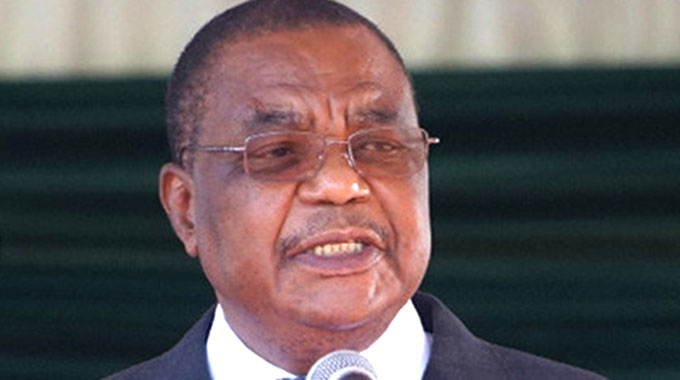VP Chiwenga urges SADC states to boost production of medicines

Mukudzei Chingwere and Kudzaishe Muhamba
SOUTHERN African countries must look beyond their largely retail role for medical consumables and pharmaceuticals and instead invest in the production of medical consumables as a way of ensuring self-sustenance and assured supplies.
The call was made by Vice President and Minister of Health and Child Care Dr Constantino Chiwenga through Deputy Minister of Health and Child Care Dr John Mangwiro at the official opening of the managers and partners meeting of the Southern African Roll Back Malaria Regional Network (SARN) in Harare yesterday.
“Most products are coming from overseas and at times, especially recently with the Covid-19 pandemic, production and shipments have been seriously delayed and programmes affected.
“We need to continue to explore other innovative ways to address this challenge including local production of some of the commodities,” said VP Chiwenga.
Zimbabwe is looking at boosting production of medical consumables as a pre-requisite for an upper middle income society by 2030 as envisaged by President Mnangagwa.
As a means to boost the scope for investment, Government through Natpharmis buying the locally produced consumables, and is not importing what can be produced locally.
Zimbabwe also stresses the need to address human resources for health and ensure all malaria programmes are well staffed with skilled personnel to win this war.
The network has been in existence since its launch in November of 2007 in Victoria Falls, and the purpose of yesterday’s meeting was to review the malaria programme performance and the impact of the Covid-19.
“The increasing emergence of resistance to antimalarial medicines by malaria parasites, and resistance to insecticides by the vector mosquitoes, means we need to be vigilant and strengthen our surveillance systems and research activities to counter these threats.
“The Covid-19 pandemic has exposed some deficit in health systems globally and hence the need for all countries continue strengthening their health systems and ensure equitable access to health care for all,” said VP Chiwenga.
“The issue of climate change which has resulted in unpredictable or unusual weather patterns and phenomena demands us to work together to come up with robust early warning systems and response mechanisms if we are to avert the effects of major malaria outbreaks as a result of climate change,” said VP Chiwenga.
The manager of the country and regional support partner committee, RBM Partnership to End Malaria, Dr Daddi Wayessa, said malaria programme implementations at global, regional and country levels have been ongoing.
“Despite the impact caused by the pandemic, millions of mosquito nets have been delivered, hundreds of thousands of houses have been sprayed, and many people received different malaria interventions including millions of children who have been protected with seasonal malaria chemoprevention in West Africa.
“RBM Partnership through country and regional support partner committee, provided implementation support to malaria affected countries which helped them mitigate the impact of Covid-19 and will continue such support in the remaining half of 2022 and in 2023,” he said.











Comments